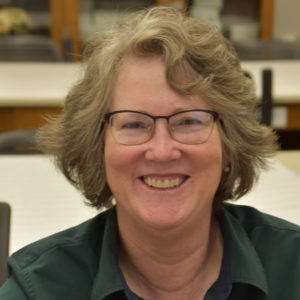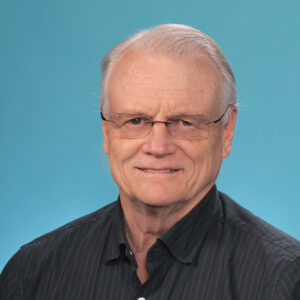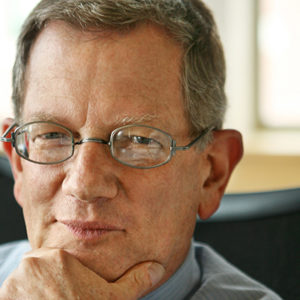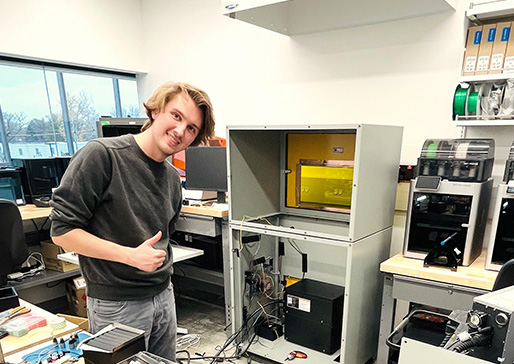Rudy to receive Chancellor’s Award for Innovation and Entrepreneurship
Rudy to be honored for innovation and entrepreneurship

Fiona Marshall and Gary Stormo will receive Washington University in St. Louis’ 2019 faculty achievement awards, Chancellor Andrew D. Martin announced.
Marshall, the James W. and Jean L. Davis Professor in Arts & Sciences, will receive the Arthur Holly Compton Faculty Achievement Award.
Stormo, the Joseph Erlanger Professor in the Department of Genetics and the Center for Genome Sciences and Systems Biology at the School of Medicine, will receive the Carl and Gerty Cori Faculty Achievement Award.
Martin also announced that Yoram Rudy, the Fred Saigh Distinguished Professor of Engineering, will receive the Chancellor’s Award for Innovation and Entrepreneurship.
The three will receive their awards and give presentations of their scholarly work during a ceremony Nov. 8 in Knight and Bauer halls.
“Professors Marshall, Stormo and Rudy embody excellence in their respective fields,” Martin said. “Their scholarly research has been recognized on a national and global scale, and their work represents the values we hold dear at WashU as we commit to conducting innovative, transformative research and improving lives in service of the greater good. I’m delighted to present these awards to three outstanding individuals and colleagues.”
Marshall
Marshall is an archaeologist in the Department of Anthropology in Arts & Sciences specializing in the study of early food production in Africa and in animal domestication. Born and raised in Nairobi, Kenya, Marshall’s work on African archaeology began with an interest in early hominid archaeology and evolved to focus on the origins of African agriculture.

In the early 1980s, Marshall and her colleagues excavated a site in Kenya that is part of the Serengeti-Mara savanna ecosystem with the largest animal biomass known to the world. To their surprise, most of the bones they found were of domestic animals, not wild animals. The discovery set her on a course to study animal domestication, such as a study she did on cat domestication in 2013, and human legacies in African savannas.
Marshall’s use of zooarchaeological and ethnoarchaeological techniques to understand the relationships between early food production, climatic shifts and the spread of early herders in Africa has advanced the field of study and has positioned her as an international expert on the human influences on African savannas and on animal domestication.
Current research projects include the study of human-animal relations, complex interactions among ancient agricultural, pastoral and hunter-gatherer societies in Africa, the history and resilience of livestock and herding ways of life, and the sustainability of African grasslands.
Marshall’s teaching, both at the graduate and undergraduate level, focuses on providing deep time perspectives on contemporary issues.
She trains students in the identification of animal bones and human-animal relations through time in both her classes and in her laboratory, which works in close collaboration with the university’s paleoethnobotany lab; the Department of Art History and Archaeology in Arts & Sciences; the International Center for Energy, Environment and Sustainability (InCEES); and with the Saint Louis Zoo.
After earning her doctorate in 1987, Marshall joined the anthropology department as an assistant professor, and she was promoted to full professor in 2002. Her administrative contributions to the anthropology department include serving as director of graduate studies and twice as interim chair. She was installed as the inaugural James W. and Jean L. Davis Professor in 2015.
Marshall is a member of the National Academy of Sciences and fellow of the American Association for the Advancement of Science. At the university level, Marshall has twice received the Outstanding Faculty Mentor Award from students in the Graduate School of Arts & Sciences and the Founders Day Distinguished Faculty Award.
Gary D. Stormo
Stormo studies how genes are regulated, using both experimental and computational methods. He was one of a handful of scientists in the vanguard of computational molecular biology, and has been considered a co-founder of the field. He uses probability theory to analyze DNA, RNA and protein sequences. He is interested in how proteins interact with DNA to regulate how genes are expressed. His work includes developing pattern recognition algorithms to identify parts of the DNA sequence required for gene regulation. He also has developed methods to predict protein coding genes in DNA sequence data and the secondary structure of RNA. He was a pioneer in developing new and innovative methods to analyze DNA sequence data, some of which have become standard computational tools.

Stormo served as the founding director of the Computational and Systems Biology graduate program at Washington University and led the successful effort to win a training grant in support of this program from the National Institutes of Health (NIH).
Stormo serves on many advisory boards, including several for large sequence databases: European Bioinformatics, GenBank and the International Advisory Committee for Nucleic Acid Sequence Databases. He has served as chair of the NIH Genomics, Computational Biology and Technology Study Section, and as the U.S. editor of the journal Bioinformatics, a major publication in the field. In 2014, he was named one of the journal’s first honorary editors.
He also is known for his dedication to mentorship, helping guide the careers of more than 30 graduate students, nearly 30 postdoctoral fellows and numerous junior faculty members. Many of his trainees have gone on to their own successful careers at prestigious research institutes and universities across the U.S. and internationally.
Stormo is a fellow of the American Medical Informatics Association and the American Association for the Advancement of Science. In 2010, he was named a fellow of the International Society for Computational Biology, an honor recognizing distinguished members of the organization who have made outstanding contributions to the fields of computational biology and bioinformatics.
He earned a bachelor’s degree in biology from the California Institute of Technology and a doctorate in molecular biology from the University of Colorado at Boulder, where he also conducted postdoctoral research and later joined the faculty of the Department of Molecular, Cellular and Developmental Biology. In 1999, he came to Washington University School of Medicine, where he has remained since.
Yoram Rudy
Rudy’s inventions have changed the way cardiologists measure deadly irregular heartbeats. His lab’s noninvasive, painless cardiac imaging technology, electrocardiographic imaging (ECGI), led to the CardioInsight™ device and related technologies. Together, these innovations work to provide more detailed heart rhythm information than standard lead EKGs without the need for — or risks associated with — catheter placement.

In 2015, Medtronic acquired CardioInsight Technologies Inc., a noninvasive cardiac electrical mapping system that has the potential to enable better patient outcomes and reduce the cost of delivery of care by improving diagnosis, evaluation and personalized treatment planning for patients with cardiac arrhythmias. The CardioInsight Mapping Vest captures cardiac electrophysiological data noninvasively from a patient, and the CardioInsight Workstation combines CT scan data with data from the vest to create personalized, 3D cardiac maps.
Rudy is the Fred Saigh Distinguished Professor of Engineering and also a professor of biomedical engineering at the McKelvey School of Engineering. He also holds appointments in medicine, cell biology and physiology, radiology and pediatrics at the School of Medicine. Beyond his teaching duties, he serves as the director of the Cardiac Bioelectricity and Arrhythmia Center.
After earning a master’s degree in physics from the Technion in Haifa, Israel, Rudy went on to study medicine and then earn a PhD in biomedical engineering from Case Western Reserve University.
In 2004, he joined Washington University. He has been a visiting professor in computational medicine at Oxford University since 2014.
Rudy holds eight patents and is a member of the National Academy of Inventors and the National Academy of Engineering of the United States of America. He has received numerous awards for his innovations, including the National Institutes of Health (NIH) Merit Award, the Biomedical Engineering Society Distinguished Lectureship Award and the Heart Rhythm Society Distinguished Scientist Award.



